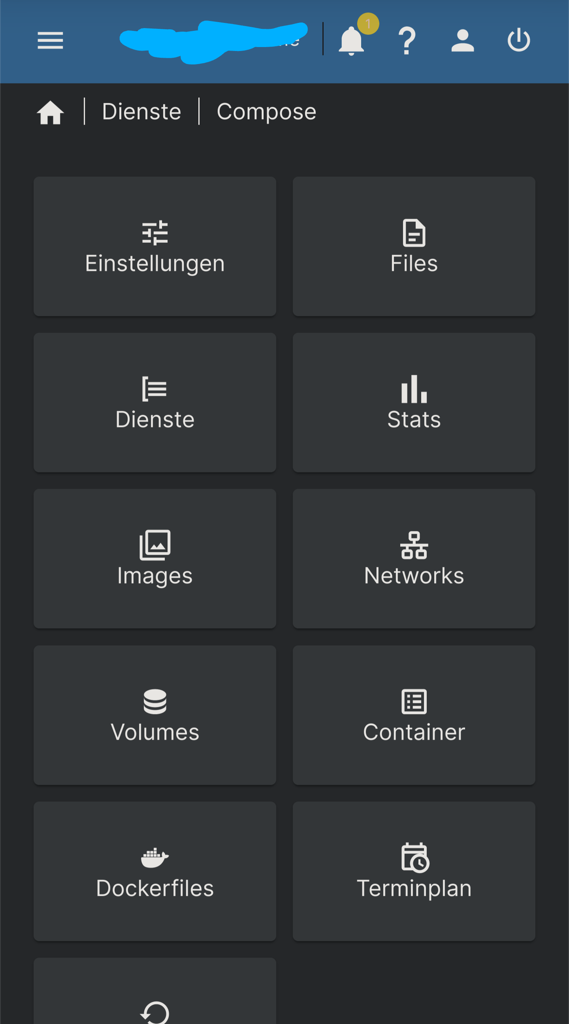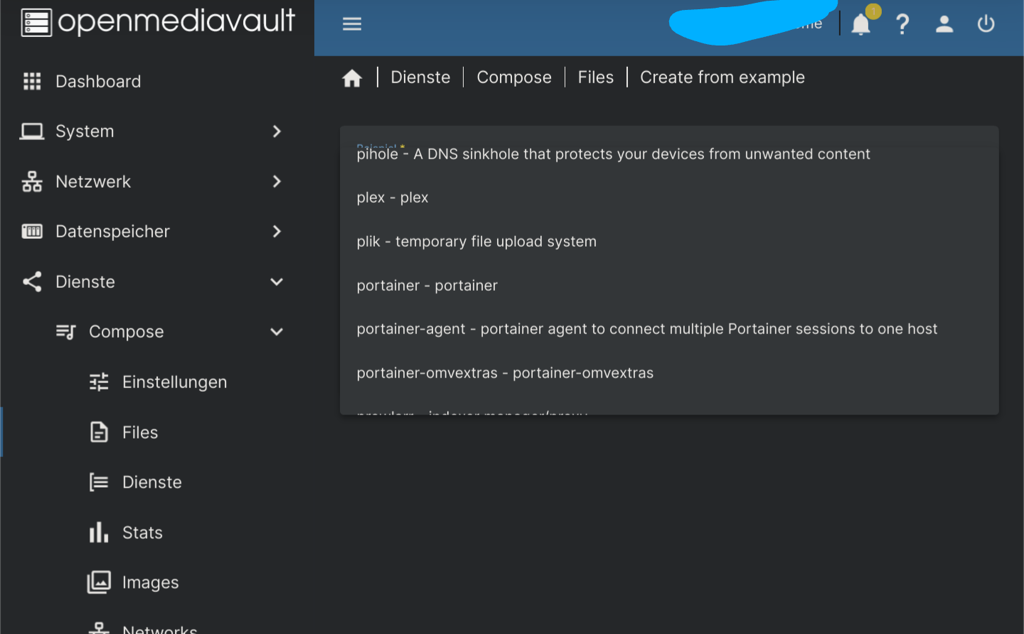I want to make a server for hosting media through Jellyfin, and maybe some Nextcloud functionality. I prefer to use containers, but something like TrueNAS’ extensions/plugins sound good as well. This is my first server, so I don’t know what to choose. My possible options are:
- Debian
- Ubuntu
- Fedora
- TrueNAS Scale Which one should I choose? I am fine with using either Docker or Podman. (Edit: The server will be running on an old laptop with a single drive slot.)
Whatever you’re most comfortable with. It’s a simple enough ask that you can do it in Ubuntu server or Debian quite easily.
I would recommend at least using docker but you don’t have to.
Truenas isn’t very forgiving with drive configuration. I really like it but it isn’t great for randomly adding drives here and there. Unraid might be a better choice for home usage. I have never had good luck with their built in app stuff but I’ve also never really tried past it not doing what I want.
I run truenas with a ubuntu server vm and docker some stuff in that. I also run proxmox on another server and a dev server running Ubuntu server that I docker things on.
deleted by creator
What about running it as a flatpak? Do you think that’s restricted enough if it is exposed to the internet?
Not seeing anyone suggesting unRAID… it’s perfect for this kind of thing (from experience). VMs, LXC, Docker & flexible storage options.
Has its own App Store built in as well🤷♀️
I don’t really want to pay for software right now, as this is just my first server.
If one wants the NAS functionality then yeah unRAID is great. If not I think they’d be served as well or better with Ubuntu and docker (ideally with portainer UI)
Proxmox. I’ve been using it and deployed jellyfin in a container, they have a bunch of one-click deployments and it’s great. Or you can just use a VM to group Docker containers together. Having a beautiful web interface is huge, Plus being able to access that interface from anywhere via WireGuard/Tailscale is great.
If you do choose to go down this route, there is a “no-nag proxmox” script somewhere, and it will disable some warnings and give you deeper customization options. Well worth a look!
Proxmox isn’t an OS. It runs on top of Debian.
I’ve never used Proxmox, but have a Docker setup on Ubuntu Server with Jellyfin, Nextcloud, Immich, and a bunch of other smaller things. I still don’t understand why use Proxmox over Docker. What does it give you that Docker doesn’t?
I run proxmox, then an alpine VM which has all my docker containers.
I do this so that I have the flexibility to run more vms if needed
Proxmox is completely different from Docker. Proxmox is focused on VMs, and to a lesser extent LXC containers. If you think you will have a need to run VMs (for example, a Windows VM for a game server that doesn’t support Linux) Proxmox is great for that.
I run Docker on a dedicated VM inside Proxmox, and then I spin up other specialized VMs on the same system when needed. The Docker VM only does Docker and nothing else at all.
- What’s the hardware?
- Debian, imho
Debian
As someone who doesn’t know as much about the differences, why?
Say debian vs ubuntu
Debian is (rightfully) known for being lightweight and very stable. Particularly with older hardware, while still being quite compatible with newer hardware. Their long-running release cycles tend to not break whenever updates do roll out. Ubuntu is Debian based as well, its focus however is on user friendliness and usability, especially on the GUI front. Ubuntu server is perfectly fine, but it’s heavy handed compared to a minimal Debian installation with just a handful of packages selected purposefully by the user for the task it is intended for. There have also been more vocal complaints about whatever Canonical is trying to do with snaps/snap store.
Most beginners with Linux I would more encourage to try Debian for its stability and speed because it’s a great platform to learn Linux on as well as experiment with whatever goal they have by way of packages and projects available all over the open source side of the web.
Honestly, I would say because you just have less struggle. I had just a lot more problems when I was using Ubuntu instead of Debian. But I thinks it’s mostly personal preference
There’s no reason to use Ubuntu for this scenario. Debian will be cleaner, simpler and easier to support long term. Ubuntu complicates things and there are no benefits to compensate that for OP’s use case.
I agree w what others have said. Just some personal background: started with Ubuntu (well technically I started with Suse, then then Ubuntu). But I found on the server, Ubuntu required a lot of manual upkeep. Debian was just always worked, never had to think twice about it.
I’m using Debian, with Docker and running Jellyfin, Nextcloud, Navidrome and Wireguard on Containers on my old laptop. So that would be my suggestion.
You could install CasaOS and/or Portainer, on top of Debian if you want an easier way to manage your server and containers.
deleted by creator
OMV actually removed their portainer implementation, so if you want to run docker you just have to do it like any other distro.
deleted by creator
OP is saying wrong information. OMV6 still has Portainer implementation but they moved the setup. OP is probably not aware of it.
https://lemmy.dbzer0.com/comment/4506142Debian and OpenMediaVault should behave similarly in terms of getting Docker set up.
It is. At my time of setup it was just following the instructions from the docker wiki and then I could install the portainer plugin.
OMV actually removed their portainer implementation
Actually they didn’t…You should update your information.
https://wiki.omv-extras.org/doku.php?id=omv6:docker_in_omv
Literally a screenshot from their UI:

Edit:

Debian’s great for this.
I’m also running NextCloud (the official AIO Docker image) on Debian. Great for that too.
TrueNAS did make it easy for me to manage my home lab, but I’m more of a software engineer than a devops. Debian if you’re comfortable with managing that.
TrueNAS Scale is based on Debian 😁
I’m running Fedora Server + Cosmos Cloud. Freaking awesome. Fedora Server comes bundled with Cockpit, which makes admin work much easier, and Cosmos Cloud makes Docker very easy, and automates your security.
I love how every answer so far is Debian.
Debian is the correct answer.
I use Ubuntu with no complaints, but Debian is probably better, like others are saying. I wouldn’t use Fedora for this.
Been running the docker on unraid for years in a HP slimline. Rock solid.
Debian, Ubuntu and Fedora should be good (in that order); I’m not very aware on truenas to give an opinion, but it seems it will work just as well from other comments.
I personally use Fedora, and it’s been a solid experience too, with the only gripe bring SELinux. I required a fix for SELinux, but it has worked flawlessly since.
However SELinux might make it annoying to work with containers, so you could consider either switching it off, using another distro or using appropriate configurations to work with it correctly.
Why Ubuntu over Fedora?
No reason other than the fact that you need extra steps to get Jellyfin working in Fedora.
If you have the patience and time, as I mentioned, you can still use Jellyfin in Fedora.
Debian or Fedora
Debian if you want something easy and stable, Fedora if you want latest updates and are comfortable with occasional SELinux settings, TrueNAS if you don’t want to spend any time at all setting up disks
Ubuntu if you want infinite dependency hell and 5 minute boot times












